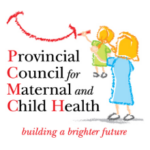
Issue 6 | April 2024
People with physical disabilities experience pregnancy at approximately the same rate as people without physical disabilities; however, they can encounter significant barriers when trying to access care such as difficulty finding providers with accessible care spaces and those comfortable with providing obstetrical care to them. In addition, some face increased pregnancy risks and have complex care needs. Because of this, an interdisciplinary approach is often required to address these risks and needs, and additional measures can be implemented to enhance the quality of care for these individuals.
In the fall of 2023, PCMCH began a collaboration with innovator and director Dr. Anne Berndl, Maternal-Fetal Medicine Specialist, and Elizabeth Jung, Advanced Practice Nurse, from Sunnybrook Health Sciences Centre’s Accessible Care Pregnancy Clinic to develop resources to support healthcare professionals when caring for pregnant individuals with physical disabilities.
In December 2023, PCMCH hosted webinar where the two clinicians from Sunnybrook and Diana Drake, a parent with lived experience of pregnancy and childbirth while concurrently having a physical disability, shared their insights. This webinar highlighted systemic healthcare barriers, identified care needs for pregnant individuals living with a physical disability, and importantly, described how providers could apply aspects of care to their own practice to enhance the quality of care for this population. “Understanding the patient perspective, followed by professionals reviewing clinical and practical strategies was really effective in understanding how to improve the patient experience and outcomes,” said one webinar attendee.
In March 2024, PCMCH released a toolkit developed by Dr. Berndl and Elizabeth Jung. “We are hoping that by outlining a practical plan of care, based on both professional and lived experiences, that people with physical disabilities will have increased access to comprehensive and tailored antenatal care,” explains Dr. Berndl. The toolkit aims to advance high-quality care, reduce barriers to access, and to promote inclusivity for pregnant individuals with physical disabilities.
The toolkit includes a Comprehensive Pregnancy Care Checklist, which is intended to be used as a guide when considering potential aspects of care needed for individuals with physical disabilities during pregnancy. It was originally developed by Sunnybrook’s Accessible Care Pregnancy Clinic with a person-centred approach, reflective of valued input from people with physical disabilities, community leaders, and interdisciplinary team members. Dr. Berndl highly values this collaboration and remarked, “we are so fortunate to have such expertise and enthusiasm from many different disciplines when designing this toolkit, as well, we had input from people with lived experience though every stage of its development. This allowed us to really think about pregnancy care and birth through multiple lenses and incorporate that expertise into this document.” The importance and purpose of this checklist is to ensure that clinical, psychosocial, and logistical aspects of care are considered, and subsequently planned for. It is meant to be completed through the continuum of care where timelines are guided by gestational age in weeks.
The toolkit also includes a Complex Case Conference Template, which is intended to support the facilitation and standardization of interdisciplinary case conferences for those with medical complexity. This template allows care providers to summarize key points of discussion with consultants, as well as the plan of care, so that everything is in one place and easily accessible. This form can also be shared with patients and their family members so that if they do go into spontaneous labour, the information can be shared with the facility they arrive at, regardless of whether they arrive at their planned place of delivery.
Recognizing that rural, remote, and community care providers may not have access to all of the resources recommended within this toolkit, the resources were adapted and revised to ensure practicality for use in different care settings by healthcare providers caring for pregnant individuals with physical disabilities. Dr. Berndl remarks, “People with disabilities deserve access to high quality, accessible, knowledgeable, and inclusive care. We sincerely want this this toolkit to be available broadly for use to help achieve these goals.”
The toolkit and other resources to support quality care for pregnant individuals living with disabilities can be found on PCMCH’s Disability and Pregnancy webpage.
